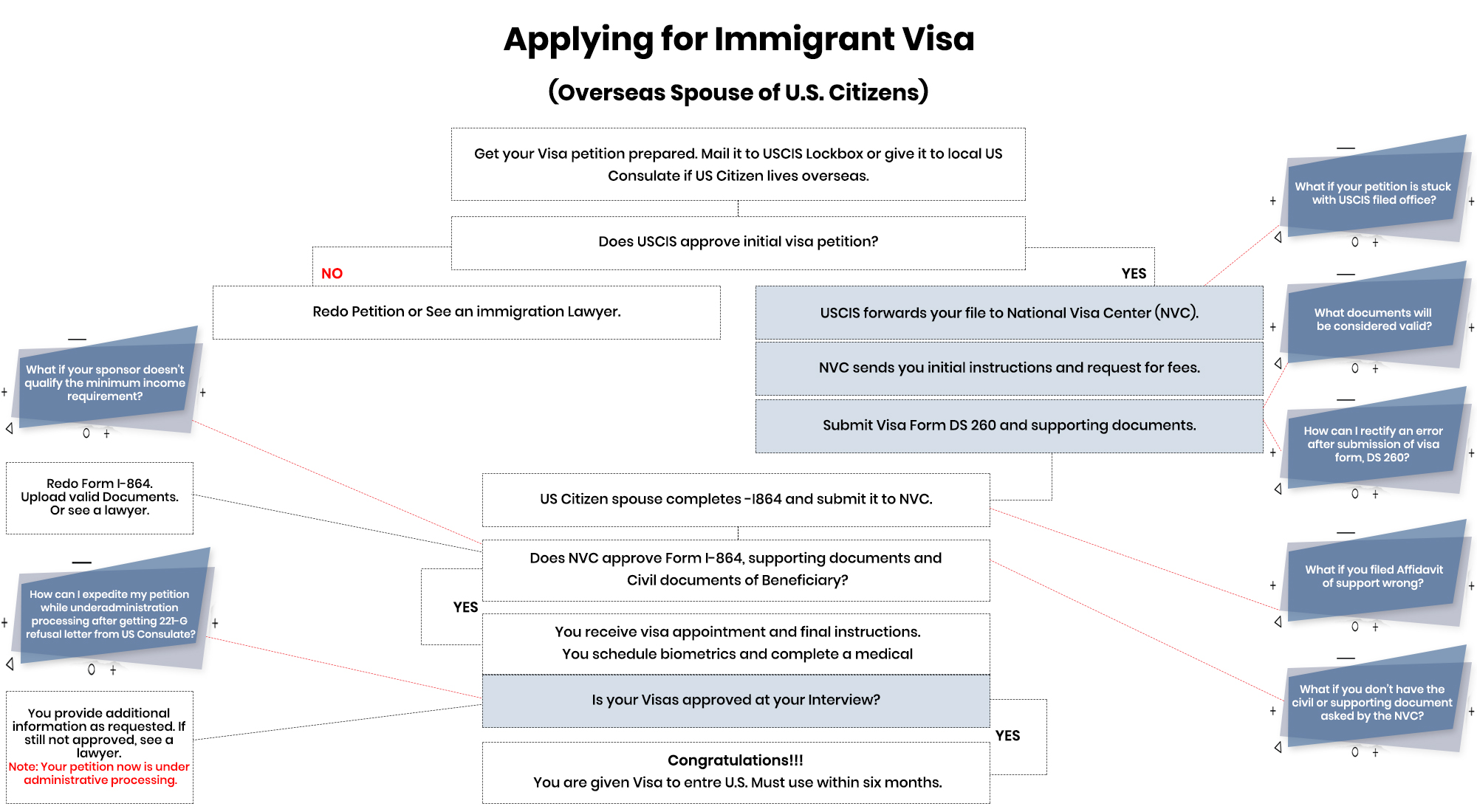FAQ-Public Charge
Home |Services|FAQ-Public Charge
FREQUENTLY ASKED KNOWLEDGE BASED QUESTIONS
What is a “public charge?”
The federal government uses the term “public charge” as a label for an immigrant who is primarily dependent on the government to meet his or her basic needs. Under a new proposed rule, the government seeks to define a public charge as someone who receives one or more of the federal public benefits listed in the rule.
When does the federal government determine if you are likely to become a public charge?
The federal government applies a public charge test when a person applies to enter the United States or when a person applies to become a green card holder (also known as lawful permanent residency), among other circumstances. When you apply for a visa or green card, you must submit an application form. Using the information from the form and from the following interview, the government will decide if you are likely to become a public charge. This specific test is not used when a person who already has a green card is applying to become a United States Citizen.
How does the federal government decide if you are likely to become a public charge?
Under the proposed rule, the public charge decision is based on several different factors. The immigration officer conducts a totality of circumstances test. This test examines the applicant’s age, health, family status, assets, resources, financial status, education, and skills. In other words, the government must look at your individual circumstances as a whole to decide if you are likely to depend on public benefits in the future. In addition, when an affidavit of support is required by law, the absence of such an affidavit conclusively establishes a person’s inadmissibility on public charge grounds.
An affidavit of support is a legally enforceable contract that a person (called a sponsor) signs to accept financial responsibility for another person who is coming to the United States to live permanently.
Under the new proposal, what are the new criteria to be considered a public charge?
Under the new rule, which is final now, you may be considered a public charge if you currently use or have used any of the following programs. This determination depends on a variety of factors, including the time and duration of usage and the value of benefits received, in addition to the other factors listed above, such as health, age, and financial resources.
- Cash assistance programs including:
- Institutionalization for long-term care.
- Medicaid health coverage, except for emergency medical conditions and services or benefits funded by Medicaid but provided under the Individuals with Disabilities Education Act (IDEA) and benefits provided to foreign-born children of United States Citizen parents.
- Supplemental Nutrition Assistance Program (SNAP), formerly called Food Stamps.
- Medicare Part D low-income subsidy for prescription drug costs.
- Federal rental assistance, such as Section 8 housing vouchers and any housing funded by Project-Based Section 8.
- Certain subsidized housing through the federal government.
Under the new proposal, what programs are excluded from the new criteria to be considered a public charge?
Disaster relief; emergency medical assistance; entirely state, local, or tribal programs (other than cash assistance); benefits received by immigrant’s family members; or any other benefit not specifically listed in the proposed rule. Benefits not listed, such as education, child development, and employment and job training programs are also excluded. The federal government is seeking public comment on whether the Children’s Health Insurance Program (CHIP) should be considered.
What if my family members use health care, nutrition, education, or other programs?
Generally, the federal government will only consider the benefits received by you as the applicant, not your family members. The federal government will not consider your children’s use of non-cash benefits (such as health insurance or food stamps) in your own application for a green card or to enter the United State.However, the number of children you have, including citizen children, may be considered as part of the public charge determination, because it affects household size. We recommend you speak with an F4 India immigration attorney
Does public charge apply to all immigrants?
No! The public charge test is not applied to green card holders in their applications to become United States Citizens. Also, certain humanitarian immigrants are either exempt from the public charge test or can qualify for a public charge waiver. This includes:
If you fall under any of these categories, you can use any benefits for which you are eligible. This includes cash aid, health care, food programs, and other non-cash programs.
If you have questions about your particular status or use of benefits, you should speak with an immigration attorney or email us info@f4india.com
What if I already have a green card and am receiving benefits?
Under the proposed rule, you cannot lose your green card just because you, your child, or other family members lawfully use benefits. And, you cannot be denied United States citizenship for lawfully receiving benefits.
What if I am a United States Citizen and am receiving benefits?
Public charge does not apply to United States citizens. If you are a United States Citizen receiving benefits, you should continue receiving the benefits for which you are eligible.
Should I stop the benefits we are receiving now?
No! If you or your family are getting benefits to go to the doctor, pay for food, or pay rent, you do not need to stop your benefits based on the rule. Speak to an immigration attorney or our office representative with specific questions.
What if I receive a benefit that’s not listed?
Only the benefits listed in the proposed rule (see Question 4) may be considered. Benefits not listed, such as education, child development, free and reduced school lunch, and employment and job training programs, are not part of the public charge test. Any local city program such as the Utility Discount Program and Seattle Preschool Program will not be considered.
Can I be deported as a public charge?
Under current law, in extremely rare circumstances, a person who has become a public charge could be deported. These rules are very narrow and have almost never been applied. This new proposal does not interpret or expand the criteria for removal or deport ability.
What are Trump’s other proposed changes in the new proposal?
Aside from the new criteria listed in Question 4, the new proposal would also:
Apply a similar test to:
- requests to extend a non-immigrant visa, (for example, to stay longer in the United States with your visitor’s visa), and
- requests to change your non-immigrant status, (for example, a change from a student visa to an employment visa).
Clarify when an immigrant seeking adjustment of status will be permitted to post a bond?
Under the proposed rule, an immigrant who is deemed inadmissible on public charge grounds may be able to post a public charge bond of at least $10,000.
What about that child receiving health coverage?
Children who are applying for a green card could be subject to the proposed new rules. And if they are receiving Medicaid, this could be weighed in the public charge test, along with their age, income, and other factors. The government has asked for input on whether to include the Children’s Health Insurance Program (CHIP) in the final rule change, but this program is not included in the current regulatory text. Children who are the United States Citizens are not subject to a public charge test.
How will the new proposal affect individuals with disabilities?
Under the proposed rule, a person’s health is one of many factors the government would consider in determining whether a person is likely to become a public charge. This includes physical or mental health conditions that could limit a person’s ability to work, attend school, or care for herself. If you have questions about your particular status or use of benefits, you should speak with our immigration attorney However, the proposed rule also states that changes will not apply to benefits (other than cash assistance or long-term care) that you received before the rule is final.
I have my green card and need to renew it soon. Can the government deny my renewal application because I am receiving Medicaid, food stamps, and/or housing assistance?
No! The public charge test does not apply when you renew a green card. The renewal application cannot be denied based on your use of programs you are eligible for.
Can naturalize United States citizens lose their citizenship if they use programs like Medicaid or SNAP/Food Stamps?
No! United States citizens cannot lose their citizenship based on their lawful use of public benefits.

